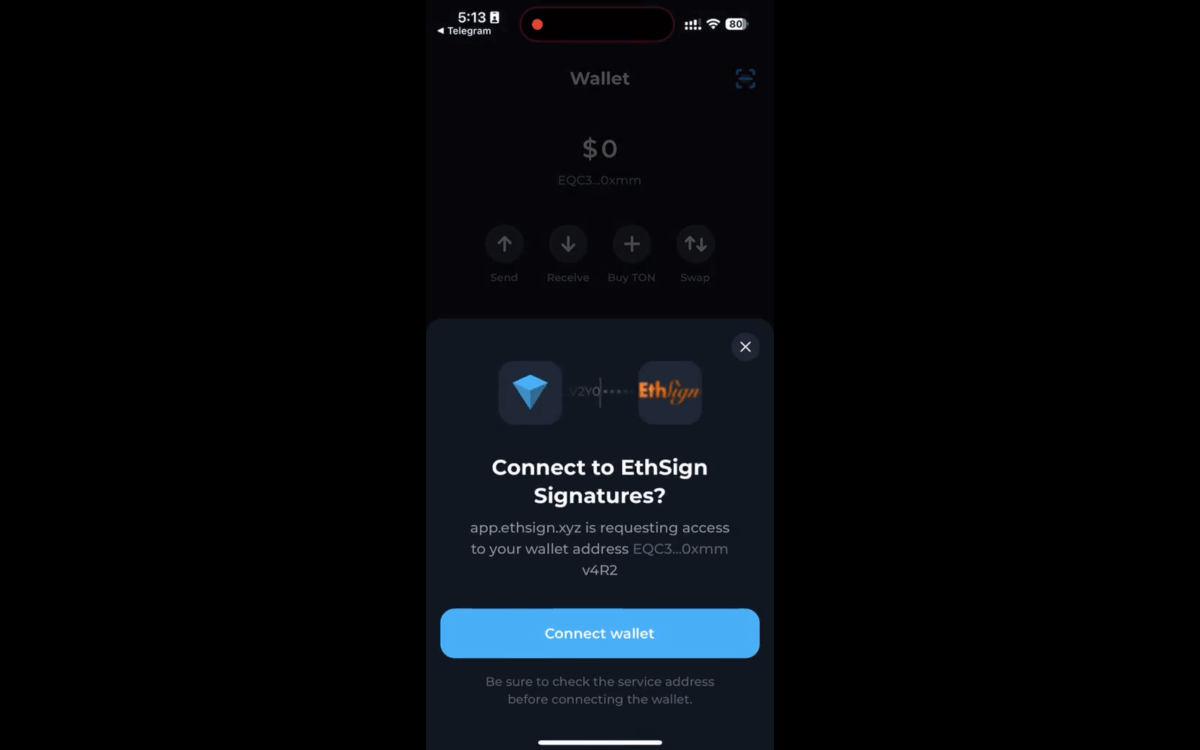Despite the ongoing regulatory crackdown on the crypto industry and the collapse of some of its poster children, the underlying decentralized technology continues to drive internet incumbents into the web3 space
.
Web3
, also known as the third wave of the internet, is characterized by a decentralized infrastructure that is built on blockchain technology.
Two of the world’s most popular messengers, Telegram
and Line
, with hundreds of millions of monthly users, have recently joined this web3 space
by integrating crypto features. This move towards web3
is fueled by the integration of a startup called EthSign
into these apps.
EthSign
is powered by all three divisions of Sequoia
: Sequoia Capital
, Sequoia Capital India
, and Sequoia Capital China
(now called HongShan
). This Singapore-based startup aims to provide a web3 equivalent
of DocuSign
with the promise of an additional layer of transparency and trustworthiness. Its goal is to convince the masses that signing contracts on the blockchain is superior to the traditional method.
According to EthSign
‘s co-founder and CEO Xin Yan
, who previously worked at the strategic investment arm of the centralized exchange Huobi
, one of the main advantages of using blockchain technology for e-signing is the ease of authenticating the identity of each signing party and tracking their interactions with the signed document.
Furthermore, EthSign
addresses a key challenge faced by traditional e-signature service providers, which is the potential loss of user signatures if the provider shuts down. This is not an issue with distributed ledger technology, as the data is immutable once signed, making it one of the most promising features of blockchain.
EthSign
is currently deployed on the blockchain networks of TON
and Finschia
, which run on Telegram
and Line
respectively. Users can connect their crypto wallets to these messengers and start signing documents through EthSign
in a similar way to how they would use DocuSign
.
Currently, EthSign
is available as a mini app on Telegram
, notifying users of any pending documents to approve. Once a contract is opened, users will be prompted to connect their crypto wallets and sign the document at the bottom. EthSign
will then request access to the users’ wallet addresses to generate tamper-proof signatures on the blockchain. (Watch a demo of the feature below.)
- Want to see how to sign contracts directly in Telegram? Here’s a quick demo of how EthSignBot works.
- It is also available on
2/ Want to see how to sign contracts directly in Telegram? Here’s a quick demo of how EthSignBot works.
In addition to Telegram
, EthSign
is also available as a web app on Line
and has recently signed a memorandum of understanding with Finschia
for further integration in the coming months.
The concept of enabling immutable signatures on messaging apps is not new. In 2018, a mini app called Little Protocol
was launched on the Chinese messaging giant WeChat
. This feature allowed users to bind themselves to an agreement with their WeChat
IDs, with the content of the document recorded on Ethereum
. The app quickly gained popularity with over 100,000 visits overnight, but was taken down by WeChat
within 48 hours.
To date, EthSign
has been connected to over 250,000 unique wallet addresses. While it is currently free to use, the startup plans to become an attestation service platform in the future and charge for attestation, verification, and other user activities, instead of relying on the traditional SaaS model of subscription fees.
According to Yan, the value of attesting information on the blockchain lies in its ability to bring trust to the on-chain world
. This is especially important in preventing vampire attacks
, a web3 phenomenon in which users are lured into a forked version of an established crypto project that offers enhanced incentives.








